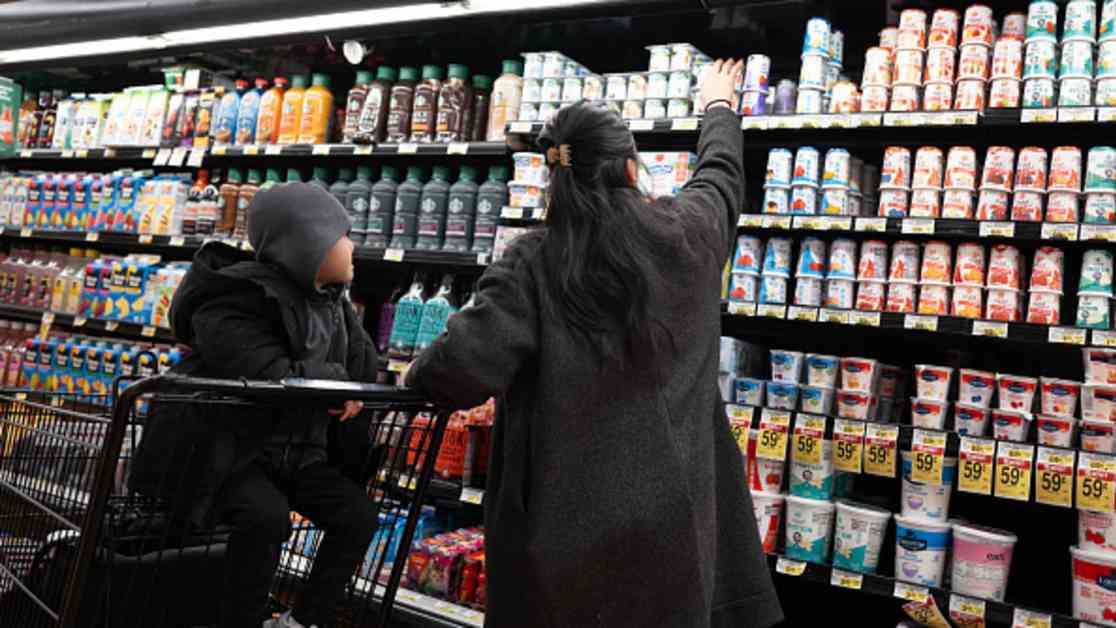Products and Companies Vulnerable to Trump’s Tariff Policies
The global economy is on edge as President-elect Donald Trump gears up to announce new tariffs on imports, sparking fears of rising prices on everyday consumer goods. From China to Mexico and Canada, the impact of these tariffs could be far-reaching, affecting products like sneakers, furniture, toys, beer, avocados, and cars. As the U.S. braces for potential economic turbulence, companies and consumers alike are left in a state of uncertainty.
Impending Tariffs: A Looming Threat to Consumers
Under Trump’s proposed tariffs, items sourced from China, Mexico, and Canada face significant price hikes, compelling American consumers to rethink their spending habits. With the potential for duties as high as 60% on Chinese goods, shoppers could see everything from toys to furniture becoming more expensive. Retailers, in turn, are left with the difficult choice of either absorbing additional costs, sharing the burden with suppliers, or passing them on to customers through higher prices. As the industry grapples with these looming changes, the future remains uncertain.
China: Impact on Furniture, Toys, and Footwear
China’s dominance in the global manufacturing landscape puts household goods like furniture, toys, and footwear at risk of price increases. With roughly 30% of furniture imports coming from China, retailers are faced with the prospect of navigating higher costs and potential supply chain disruptions. Similarly, the toy industry, heavily reliant on Chinese imports, could see prices surge by up to 56%, affecting popular items like Barbie dolls. Meanwhile, the footwear sector, with a significant share of imports from China, is already witnessing companies reevaluating their production strategies in response to the tariff threats.
Mexico: The Automotive and Beverage Industry on Alert
Mexico’s pivotal role in supplying cars, beers, and avocados to the U.S. market hangs in the balance as potential tariffs loom large. Automakers heavily depend on Mexican imports to meet consumer demand, with tariffs posing a significant threat to the industry’s profitability. In the beverage sector, companies like Constellation Brands face the challenge of navigating cost increases on imported Mexican beers. Avocado enthusiasts, accustomed to a steady supply from Mexico, could also find themselves grappling with higher prices and potential supply chain disruptions.
Canada: Automotive, Agricultural Goods, and Apparel in Peril
As Trump’s tariff policies extend to Canadian goods, industries like automotive manufacturing, agricultural exports, and apparel production are bracing for impact. The auto sector, deeply integrated across North America, stands to bear the brunt of tariffs on Canadian vehicles and parts. Consumers may face higher prices on agricultural products like French fries, with suppliers like McCain Foods exploring alternative production strategies to navigate the changing trade landscape. High-end apparel brands like Canada Goose, known for their locally made outerwear, are also monitoring the situation closely as tariffs threaten to disrupt their supply chains.
In the face of uncertainty surrounding Trump’s tariff policies, companies must prepare for potential disruptions while consumers grapple with the prospect of higher prices on everyday goods. As the global economy navigates these turbulent waters, the implications of these tariffs extend far beyond economic considerations, impacting businesses, consumers, and supply chains worldwide.



















